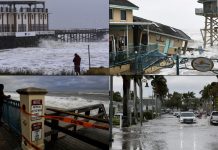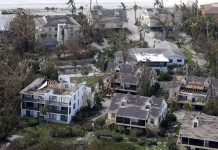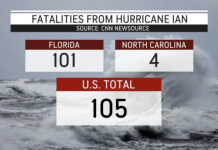The U.S. National Hurricane Center (NHC) upgraded Harvey to a hurricane from a tropical storm on Thursday afternoon.
They added it would strengthen into a Category 3 hurricane before hitting the Texas coast late on Friday or early on Saturday.
The storm is now expected hit the central Texas coast with a combination of winds of 115 miles (185 km) per hour and heavy rains.
With this system’s intensity and slow motion, it is the worst of both worlds. There will be major impacts along the coast and inland with periods of prolonged rain.
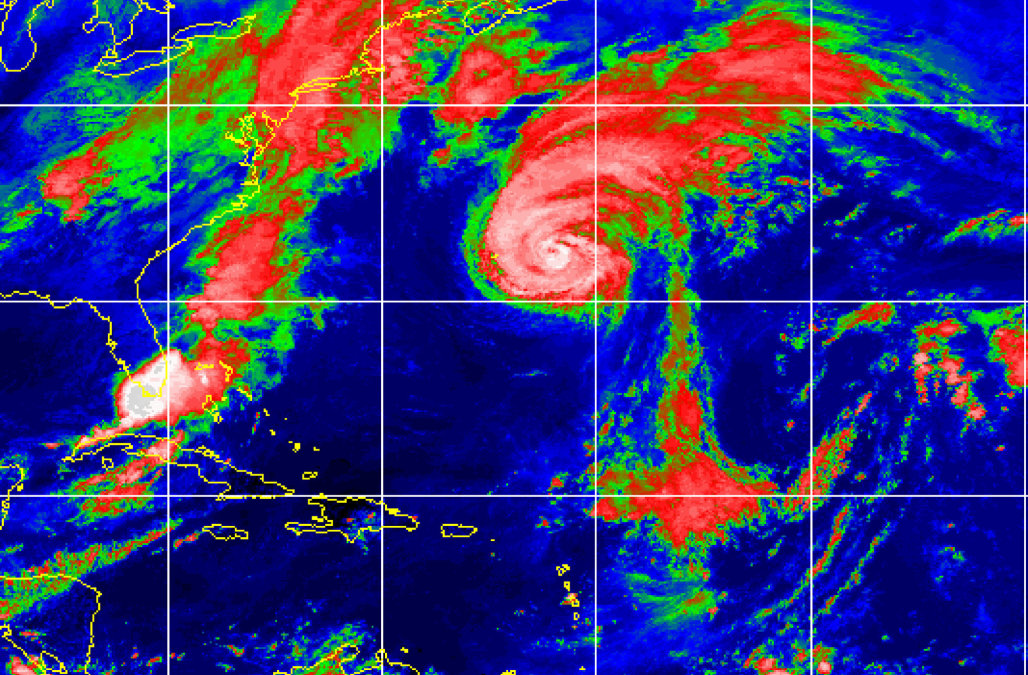
Harvey will cause a storm surge that will flood parts of the Texas coast as it makes landfall and linger for days over the state, dumping up to 30 inches (76.2 cm) of rain in some areas.
So, beware of flash floods as flash floods can come quickly, and they can be deadly.
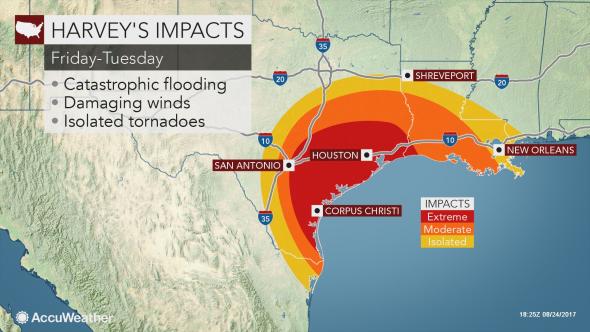
Oil supply disruption
Harvey has already disrupted U.S. oil supplies and U.S. gasoline prices surged to a three-week high on Thursday.
Energy companies including Royal Dutch Shell, Anadarko Petroleum and Exxon Mobil have evacuated staff from offshore oil and gas platforms in the storm’s path. Two oil refineries Corpus Christi were shutting down ahead of the storm. Prices for gasoline in spot physical markets on the Gulf Coast rose, even more, hitting a one-year high.
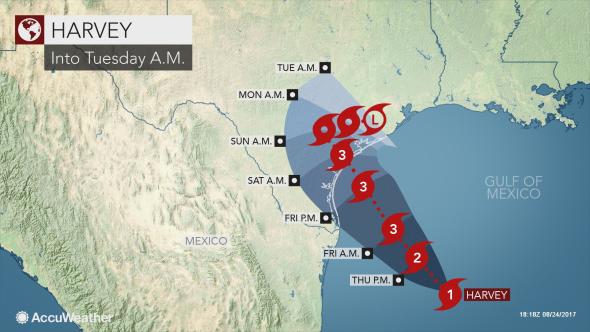
The NHC expects the storm to come ashore along the central Texas coast, an area that includes Corpus Christi and Houston, where more than 45 percent of the country’s refining capacity is.
State of disaster in 30 counties
Texas Governor Greg Abbott declared a state of disaster on Wednesday for 30 counties, authorizing the use of state resources to prepare for the storm.
Coastal cities and counties distributed sandbags to residents as some businesses boarded up windows, and residents flocked to grocery stores to stock up on supplies, local media reported.
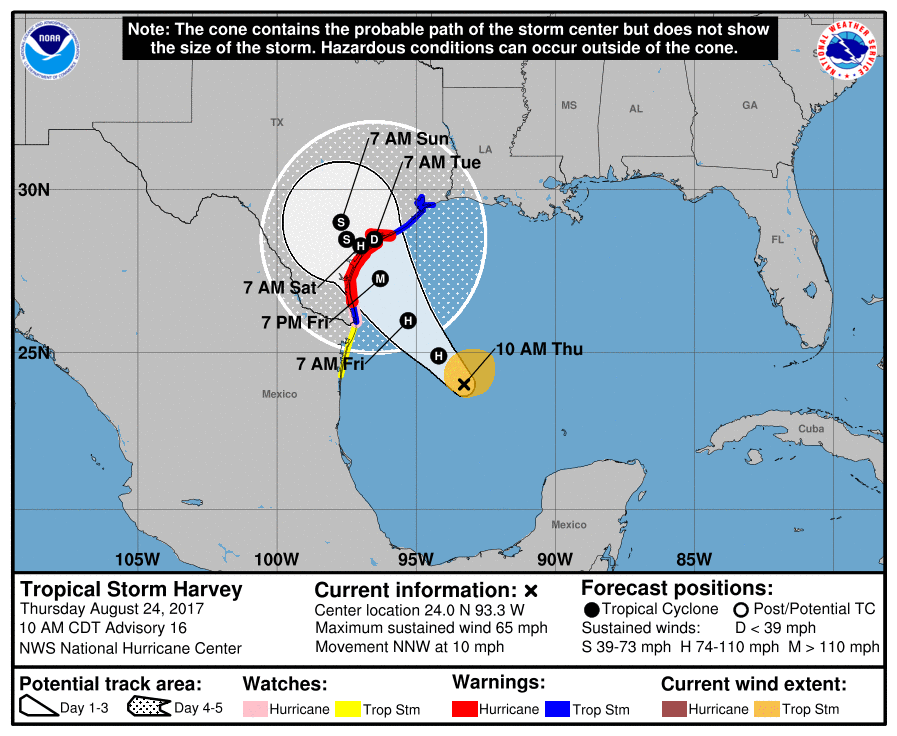
Texas A&M University-Corpus Christi issued a mandatory evacuation to all students who live on campus and canceled events.






